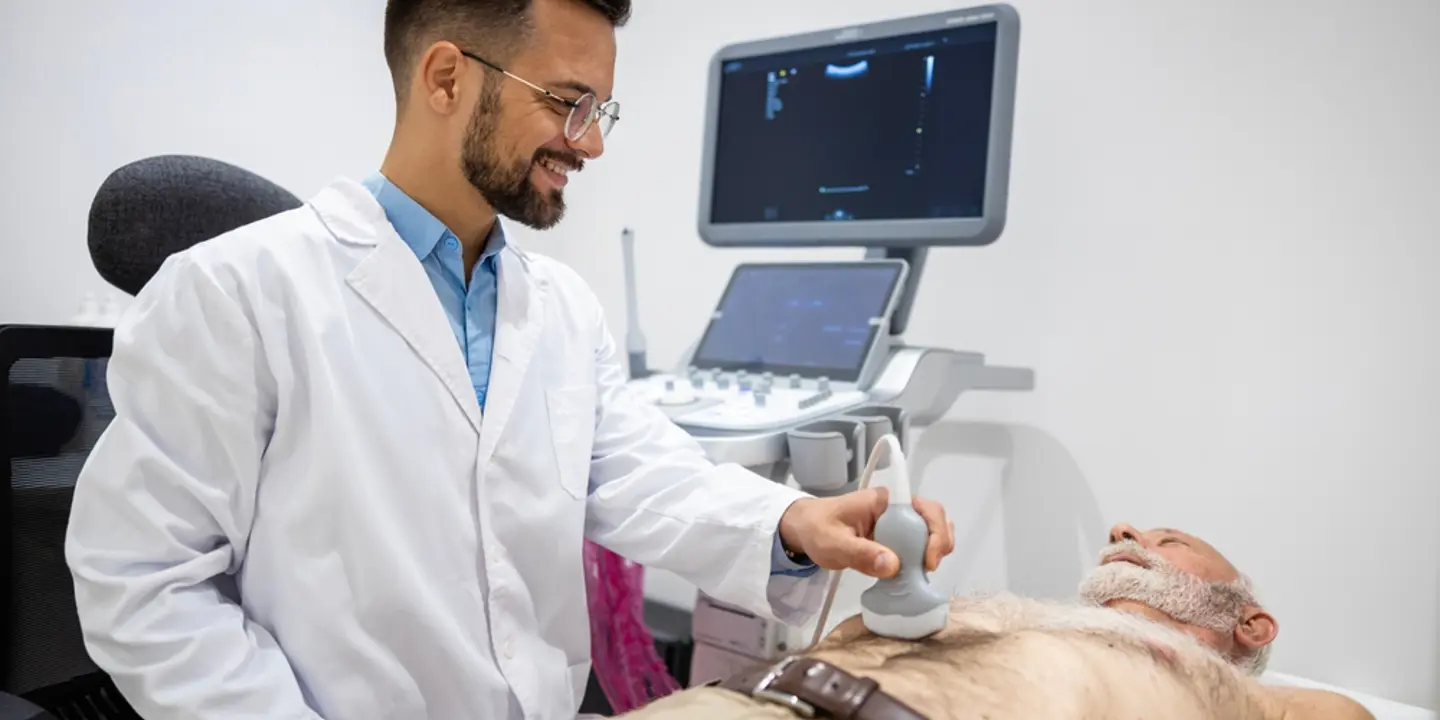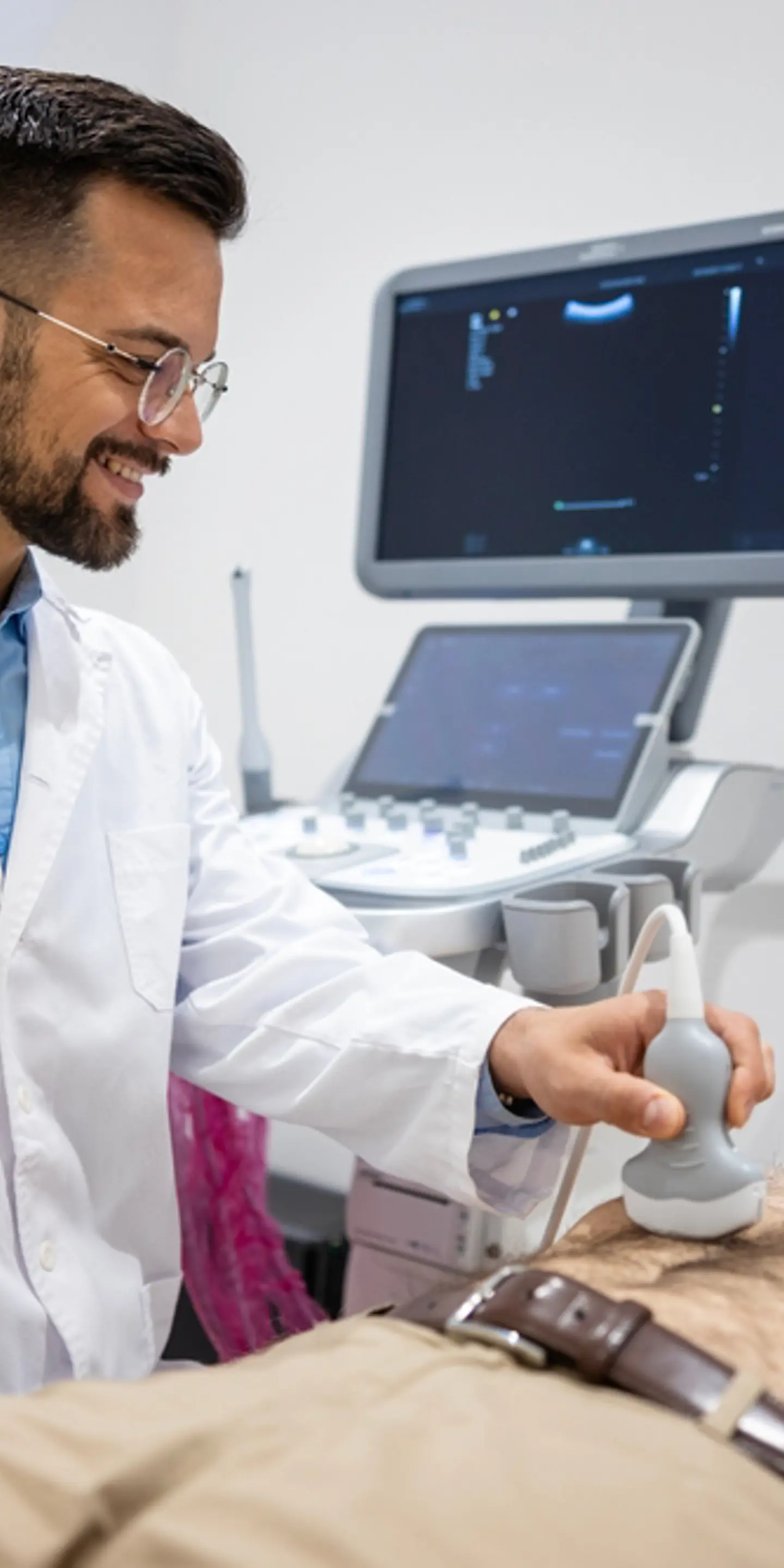 Clinically reviewed by Peter Kabogoza
Clinically reviewed by Peter Kabogoza
National Clinical Lead - Ultrasound
Should I Worry About a Liver Ultrasound? Here's What To Know
A liver ultrasound uses high-frequency sound waves to create detailed images of your liver. Healthcare professionals may recommend a liver ultrasound if you have symptoms that suggest liver problems.
So, can an ultrasound scan detect liver damage? Yes. But if you’re wondering “Should I worry about a liver ultrasound?”, the answer is no. A liver ultrasound scan is a safe, painless imaging test.
Your liver ultrasound results may identify a health condition that is a cause for concern. However, early detection means you can get prompt treatment.
Here, we will explore reasons to have a liver ultrasound and what it can detect.
Why do I need an ultrasound on my liver?
Your doctor may recommend a liver ultrasound if you have symptoms suggesting liver disease or liver damage (eg liver lesions). Symptoms include jaundice and upper-right abdominal pain.
Other common reasons for a liver ultrasound scan include if:
-
you have a history of liver infections (hepatitis)
-
you have a history of excessive alcohol use
-
you had a blood test suggesting a problem with your liver i.e. an abnormal liver function test, which showed elevated liver enzymes
Medical conditions detected by an ultrasound of the liver
A liver ultrasound scan can detect multiple liver conditions, including:
-
An enlarged liver (hepatomegaly)
-
Fatty liver disease
-
Abnormal masses eg benign masses like cysts or more concerning masses like liver cancers
-
Liver fibrosis
-
Liver inflammation
-
Portal hypotension
Benefits of a liver ultrasound
A liver ultrasound is quick, non-invasive and generates real-time images of your liver.
Unlike a CT scan, no X-rays - which are a type of ionising radiation – are used during an ultrasound scan. This makes it safe for children and pregnant women.
Also, unlike an MRI scan, no strong magnets are used, which makes it safe for those with metal implants.
Preparing for your liver ultrasound
You will usually be asked to fast for at least 6 hours preceding your liver ultrasound. This means you can’t eat or drink anything other than water.
Understanding liver ultrasound results
Your liver ultrasound results will depend on the type of ultrasound you have, such as a:
-
standard liver ultrasound - this looks at the size, shape and overall condition of your liver (eg checking for scar tissue or fatty tissue) as well as other organs in your upper abdomen (eg gallbladder and bile ducts)
-
vascular liver ultrasound - this looks at the blood vessels of your liver using Doppler ultrasound to check the blood flow
-
elastography ultrasound (transient elastography) - this looks at the stiffness of your liver tissue to help detect fibrosis
One of our experienced doctors will interpret your ultrasound results and provide you with a detailed report on the health of your liver. This will include any abnormal findings and underlying conditions identified. They will also let you know whether you need any follow-up tests, such as a liver biopsy, CT or MRI scan.
Next steps after your ultrasound results
We aim to provide your results within 3 working days, so you can take action to improve your liver health as soon as possible.
Your results can be sent to your NHS GP or you can discuss what they mean for you with one of our expert private GPs.
If you’re ready to find out what’s going on with your liver health, book your private ultrasound at one of our nationwide clinics today.
Sources
https://my.clevelandclinic.org/health/diagnostics/liver-ultrasound
https://www.medicalnewstoday.com/articles/liver-ultrasound
https://www.healthline.com/health/ultrasound-for-liver-disease


